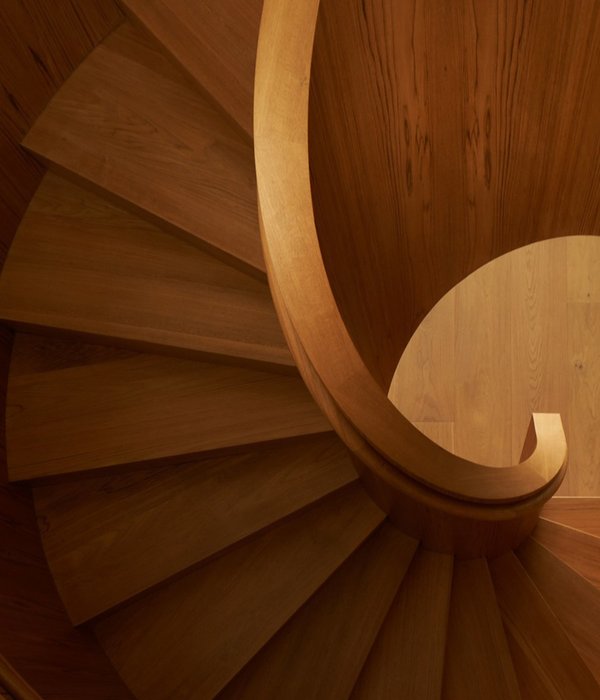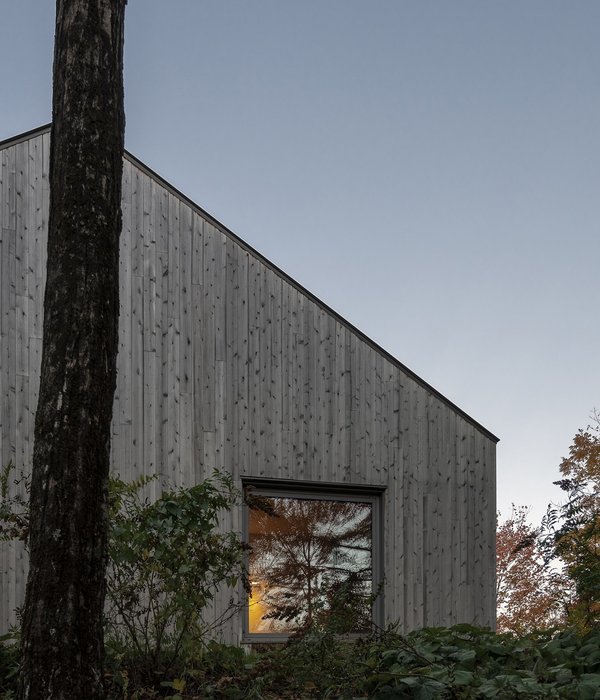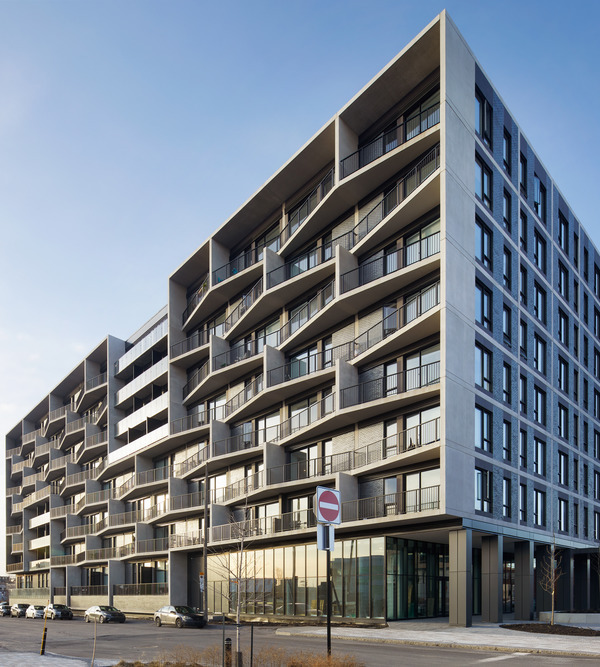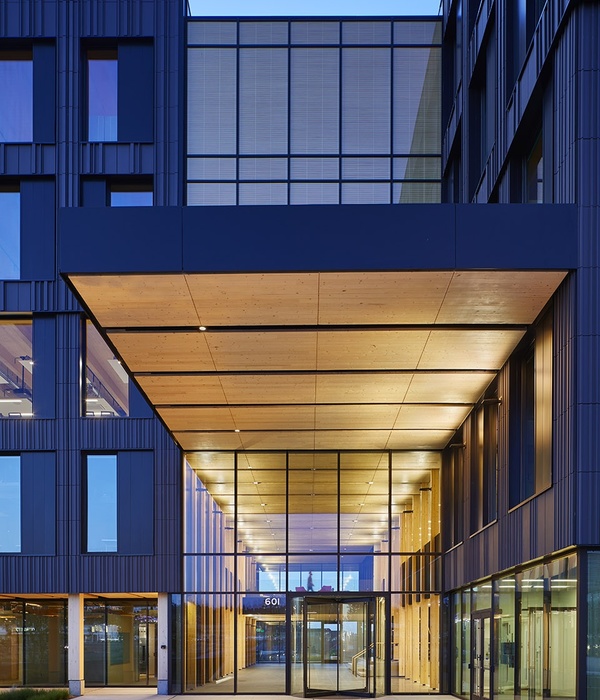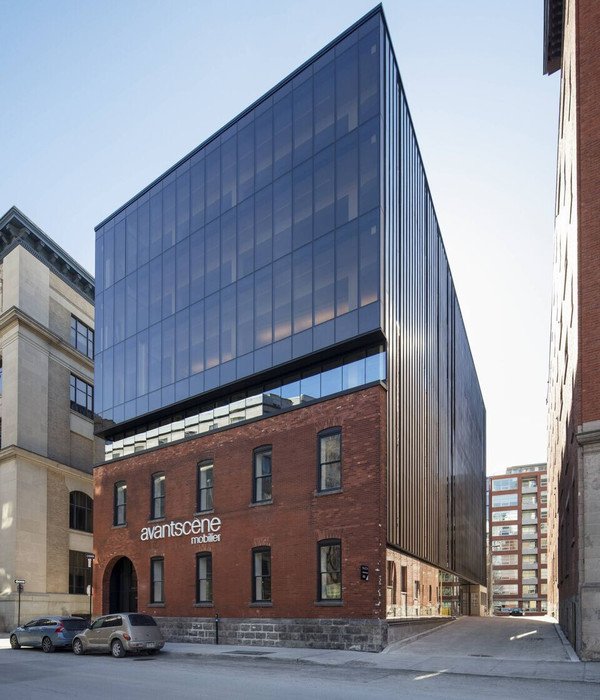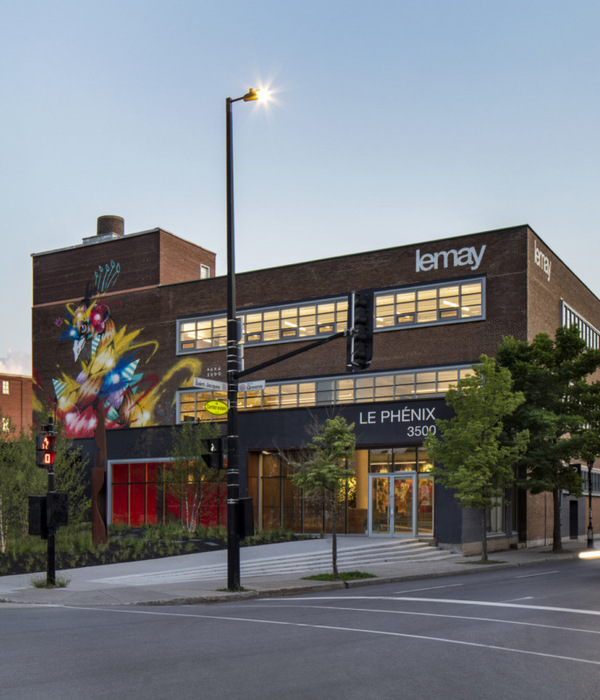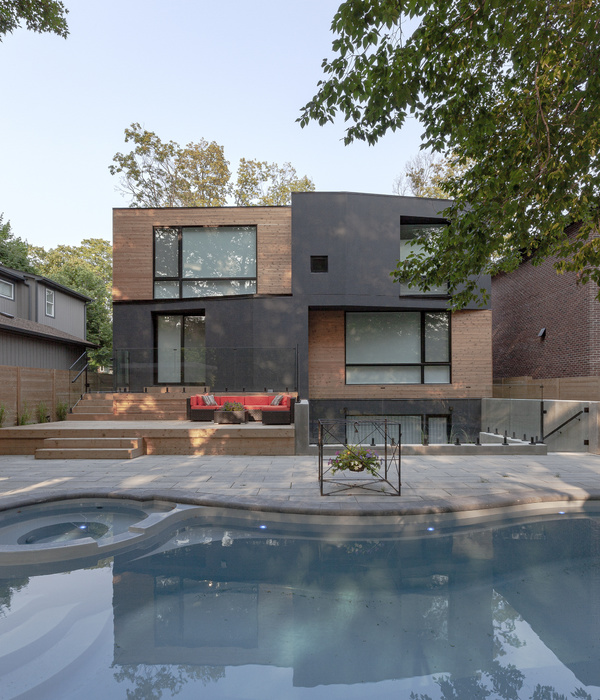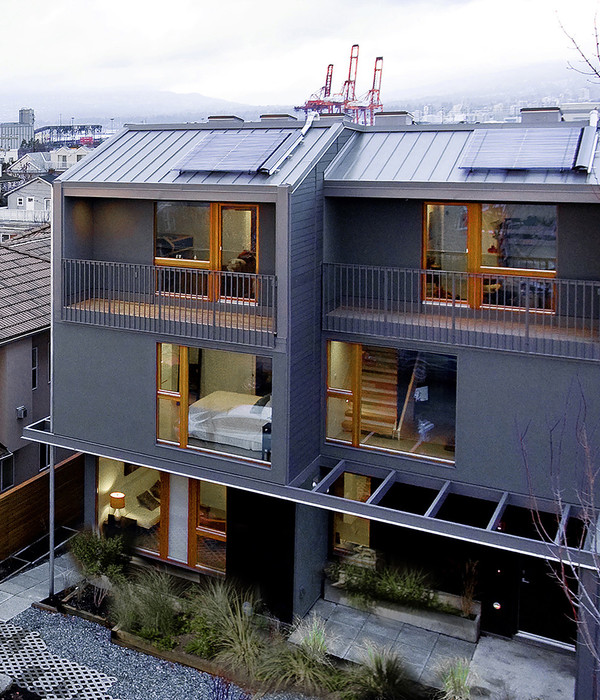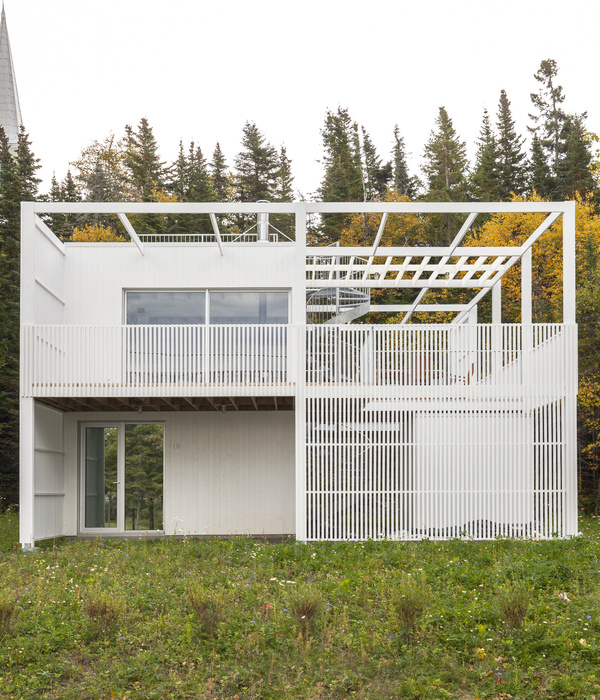A Victorian terraced house is extended to the rear, drawing closer to an old apple tree in the south-facing garden. A narrow site demands that functions (kitchen, courtyard, stairs, stove, study) align with edges and attach to structure, occasionally swelling towards the heart of the plan.
Handmade terracotta floor tiles unite internal and external spaces like a carpet throughout the plot. Blockwork and in-situ concrete are used sparingly, though prominently, as the primary structure on the ground floor.
Larch-clad timber frame completes the floor, wall, and roof structure on the upper level.
The house transforms in summer, when hardwood doors open fully to the courtyard and fold back to the rear allowing the elemental concrete structure to stand free, pavilion-like, between party walls and bridging from house to garden.
{{item.text_origin}}

